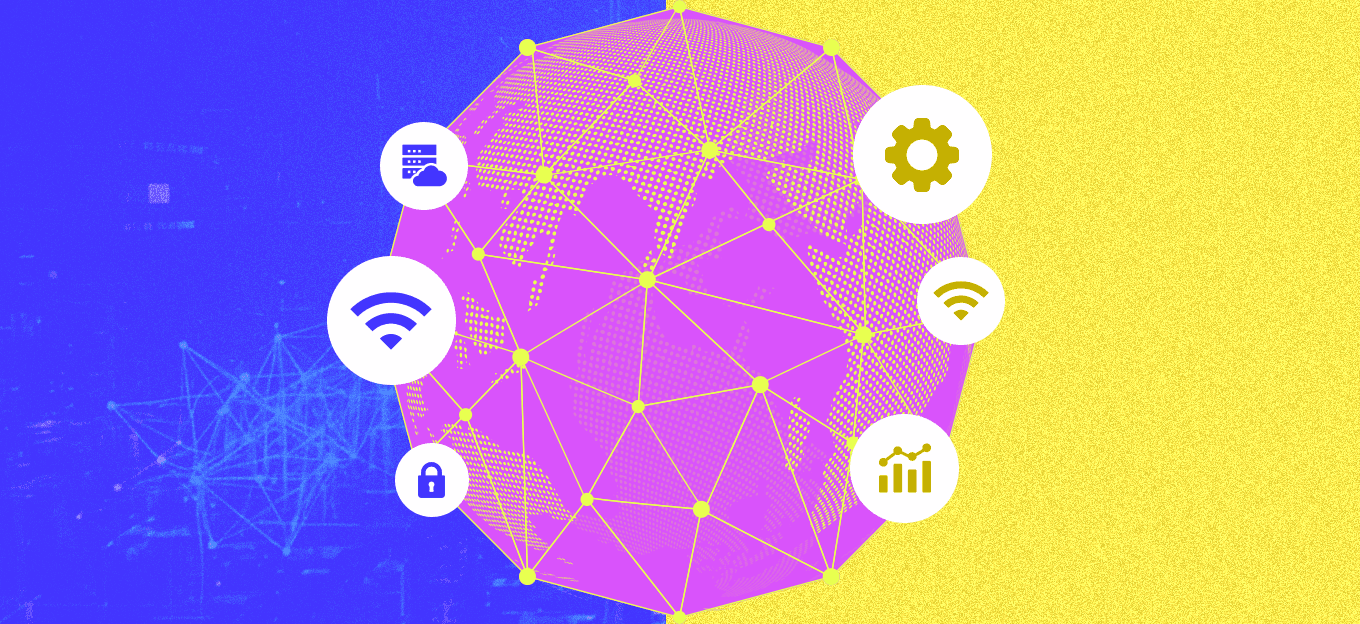5 Integrated Development Environments (IDE) For Building Successful IoT Products
5 Integrated Development Environments (IDE) For Building Successful IoT Products
- Last Updated: December 2, 2024
Guest Writer
- Last Updated: December 2, 2024



In an age of rapid decision-making and increased demand for efficiency, emerging technologies such as IoT and AI make a major impact across every industry. Patients no longer need to visit healthcare centers for supervision and routine monitoring. Factories have the ability to implement automation to eliminate errors and increase productivity. Farmers can now utilize sophisticated predictive algorithms to understand the right crops for soil types, the fertilizers to be used, approaching weather conditions, and more. In the face of rising global demands for healthcare, food, and essential products, digital adoption has not only become essential for enterprises but crucial for survival.
In the face of rising global demands for healthcare, food, and essential products, digital adoption has not only become essential for enterprises but crucial for survival.
According to Statista, 2020 saw around 21 billion active IoT devices, and the number is slated to increase to 75 billion by 2025. With clients demanding more smart solutions, enterprises are looking to constantly up their development game and ensure they help organizations go to market fast and stay ahead of the competition. Additionally, with such volumes of data involved, the cybersecurity aspect is constantly under the scanner with developers ensuring they use the best tools and make security an integral part of the plan from day one.
Integrated Development Environments
To that end, keeping fast yet robust development requirements in mind, there are several integrated development environments (IDEs) that facilitate product development and enable teams to integrate essential elements quickly, build, release and scale. With the growing popularity of such solutions, organizations must account for millions of daily requests and thus, opt for platforms and cloud services capable of such demands such as the following:
Microsoft Azure IoT Kit
With a dedicated team on the project, Microsoft has a suite of six IoT kits that come with Azure certification. For developers with single-board PCs, sensors, and actuators, such kits can prove invaluable. Highly customizable and with an eye for individuals of every skill level, some of the kits are intended for expert development teams. At the same time, beginners and those with intermediate knowledge can use the Adafruit Raspberry Pi Kit, Adafruit Feather M0 Kit, and SparkFun Thing Dev Kit.
IBM Watson
A development environment with high security at its core, IBM’s Watson has several useful features that can accelerate development while ensuring strong fundamentals with secure device control. Teams can take advantage of its ability to keep multiple devices connected and synced, expert data handling, real-time analysis, and high-quality cloud services to store large volumes of data, organize and coordinate them.
Arduino
An easy-to-use, yet feature-rich platform, Arduino was created to be a fast prototyping tool for students and has evolved, over the years, to become the backbone of several high-end IoT projects. Simple for beginners yet flexible with advanced features for experts, Arduino enables enterprises, individual enthusiasts, and hobbyists to bring connected product ideas to life. The IDE facilitates diverse hardware systems to connect seamlessly and offers a comprehensive IoT package that draws from many examples, libraries and makes crafting industry-grade IoT development projects simpler.
AWS IoT
Offering a high degree of scalability and versatility, amazon web services have become the platform of choice for many enterprises worldwide. With powerful and sophisticated cloud management and computing systems, the platform allows connections from large numbers of devices, easy extensions, and rapid data processing and analysis. Additionally, its cost-effectiveness and top-class support have enhanced its popularity among the development community significantly.
DeviceHive
Another platform that’s preferred by many owing to its cloud-based API that can be controlled easily and various deployment options. DeviceHive also plays nice with IoT's hottest applications in modern times, such as industrial automation and smart homes. The platform deploys cutting-edge software design practices and is built to scale, addressing large enterprises' needs.
With the increasing presence and applications of IoT-enabled services in our lives, business leaders are increasingly looking to leverage its many advantages to take their products to the next level. Not only do smart devices talk to customers better, but they also provide data from which actionable insights can be extracted to provide a more personalized experience, which goes a long way to improve CX and drive greater brand loyalty. However, strategizing and building the right IoT products for your business is not easy. Failing to establish a product-market fit, development strategy, and distribution plan could prove costly. Working with a proven digital transformation partner makes a difference as they can do most of the heavy lifting for you, provide expertise across a wide range of platforms, and take care of long-term support.
Done well, IoT can open up new digital lines of business by enabling you to upsell, cross-sell and create a whole suite of additional services that can get customers invested and enhance retention and revenue.
The Most Comprehensive IoT Newsletter for Enterprises
Showcasing the highest-quality content, resources, news, and insights from the world of the Internet of Things. Subscribe to remain informed and up-to-date.
New Podcast Episode

Moving Past the Pilot Phase in IoT and AI
Related Articles
Are We Running Out of Infrastructure Capacity? What IoT Leaders Need to Know
December 18, 2025

Clarity Wins: What the Blue Jays’ World Series Run Teaches Tech Leaders About Alignment and Execution
October 24, 2025

The 7 Worst Examples of IoT Hacking and Vulnerabilities in Recorded History
October 3, 2025
